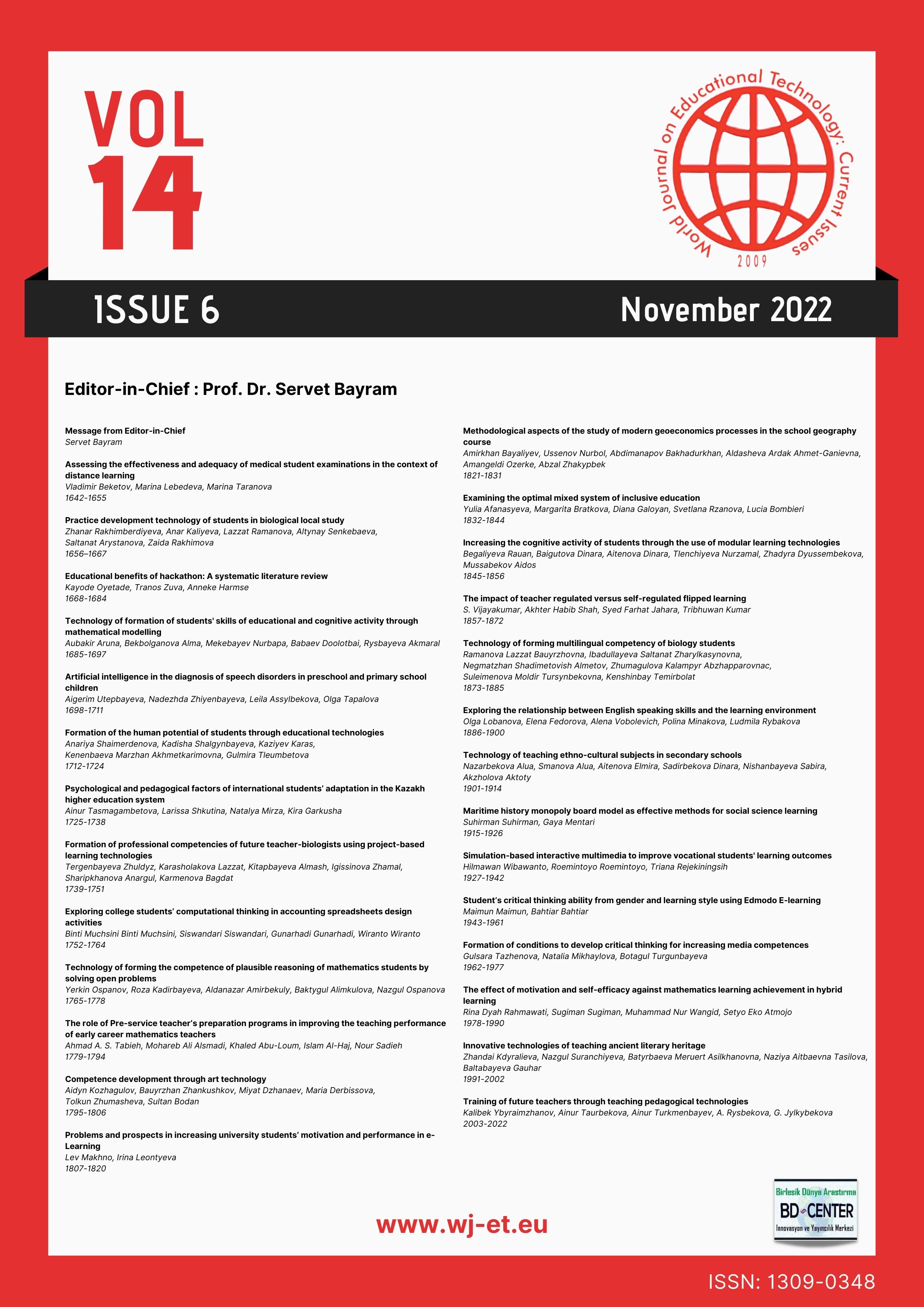Exploring college students’ computational thinking in accounting spreadsheets design activities
Main Article Content
Abstract
This study aims to investigate the extent to which computational thinking can be developed through constructionism-based accounting spreadsheets activities. This study design used a mixed-method approach, namely a participatory qualitative approach and a quantitative descriptive approach. Data were collected through documentation (college students’ artefacts) and classroom observations. The results showed that constructionism-based accounting spreadsheets design can build and facilitate computational thinking development. The college students’ emotional and social engagement when executing a design plan can foster curiosity and high enthusiasm to complete the design together. This engagement can reduce the cognitive load that students feel in understanding programming languages when utilising visual basic for application excel. This study contributes and suggests to learning practitioners to improve the students’ quality so that they can compete in this digital era. This research can be used as a basis for conducting further research where researchers empirically investigate the impact of computational thinking development.
Keywords: Computational thinking, cognitive load, emotional engagement, accounting education;
Downloads
Article Details

This work is licensed under a Creative Commons Attribution 4.0 International License.
World Journal on Educational Technology: Current Issues is an Open Access Journal. The copyright holder is the author/s. Licensee Birlesik Dunya Yenilik Arastirma ve Yayincilik Merkezi, North Nicosia, Cyprus. All articles can be downloaded free of charge. Articles published in the Journal are Open-Access articles distributed under CC-BY license [Attribution 4.0 International (CC BY 4.0)].
Birlesik Dunya Yenilik Arastirma ve Yayincilik Merkezi (BD-Center)is a gold open-access publisher. At the point of publication, all articles from our portfolio of journals are immediately and permanently accessible online free of charge. BD-Center articles are published under the CC-BY license [Attribution 4.0 International (CC BY 4.0)], which permits unrestricted use, distribution, and reproduction in any medium, provided the original authors and the source are credited.
